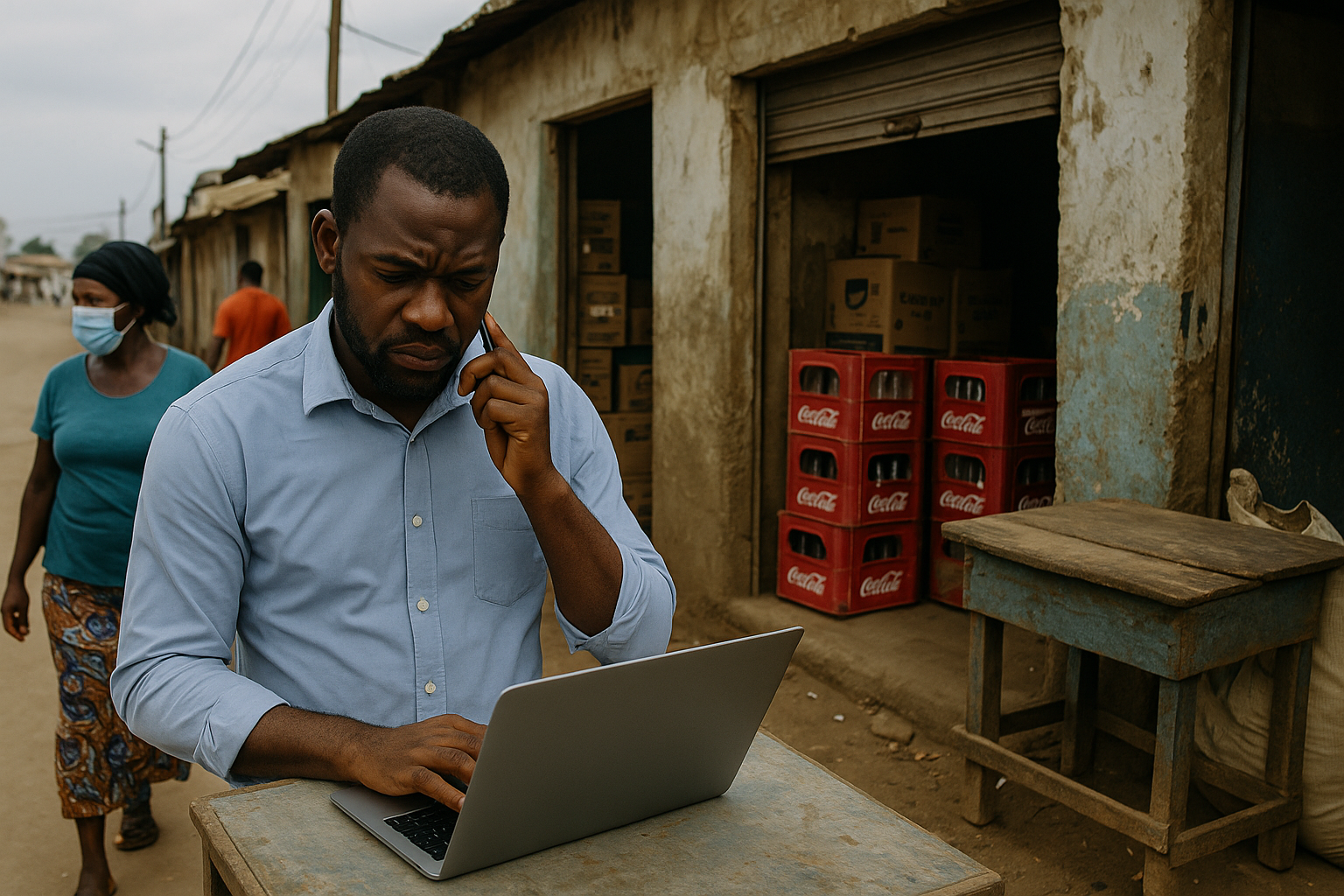COVID-19 exposed deep resource gaps in Africa’s entrepreneurial ecosystem
The pandemic disrupted the functional contributions of key ecosystem players, including financial institutions, government agencies, and support organizations. Many incubators and small business development agencies suspended operations, leaving entrepreneurs without critical support services. These challenges were compounded by bureaucratic hurdles, red tape, and corruption, which further limited the ability of SMEs to adapt and recover.

Africa’s small and medium enterprises (SMEs) have long struggled against a backdrop of weak institutions, inadequate infrastructure, and limited access to resources. These challenges, intensified by the COVID-19 pandemic, have severely impacted the continent’s entrepreneurial development. A recent study sheds light on how these constraints shaped the survival and growth of SMEs during and after the crisis.
The research, titled "African Entrepreneurial Ecosystem Resource Constraints: A COVID-19 Perspective," was published in the Journal of Entrepreneurship and Innovation in Emerging Economies. Using Pickering and Byrne’s Systematic Quantitative Assessment Technique (SQAT), the study analyzed literature and evidence to evaluate how resource limitations, combined with the pandemic’s disruptions, affected entrepreneurial ecosystems across Africa.
How did COVID-19 amplify longstanding entrepreneurial challenges?
The study reveals that African entrepreneurial ecosystems were fragile even before the pandemic, characterized by inadequate infrastructure, poor governance, and a lack of supportive policies. The arrival of COVID-19 intensified these pre-existing weaknesses. Lockdowns, supply chain disruptions, and market uncertainties caused widespread business closures and revenue losses. SMEs, which form the backbone of African economies, faced severe liquidity shortages and reduced access to essential networks and resources.
The pandemic disrupted the functional contributions of key ecosystem players, including financial institutions, government agencies, and support organizations. Many incubators and small business development agencies suspended operations, leaving entrepreneurs without critical support services. These challenges were compounded by bureaucratic hurdles, red tape, and corruption, which further limited the ability of SMEs to adapt and recover.
Despite these setbacks, the study notes that the pandemic served as a stress test for African businesses, exposing vulnerabilities but also prompting innovation. Some SMEs adopted digital tools, embraced e-commerce, and restructured their business models to remain competitive. However, such adaptive strategies were not universal, as many enterprises lacked the resources and skills to pivot effectively.
What are the key elements undermining Africa’s entrepreneurial ecosystem?
The authors identify three critical factors that continue to hinder entrepreneurial development: entrepreneurship education, infrastructure, and the ease of doing business.
Entrepreneurship Education: The study highlights a gap in the integration of entrepreneurship education into African curricula. While business knowledge is essential for navigating crises, disruptions in educational institutions during the pandemic curtailed skill development. Moreover, existing programs often fail to equip entrepreneurs with adaptive skills such as opportunity recognition, risk management, and innovative problem-solving. The lack of a contextually designed curriculum, supported by real-world examples and practical teaching methods, has limited the impact of entrepreneurship education on fostering resilient businesses.
Infrastructure Deficiencies: Persistent problems with electricity, internet connectivity, and transportation systems have long hampered business operations. The pandemic underscored these issues, as businesses faced increased operational costs and reduced productivity due to unreliable infrastructure. The absence of robust energy systems and functional road networks raised the cost of doing business, creating additional barriers to growth.
Ease of Doing Business: Complex registration procedures, corruption, and bureaucratic inefficiencies discourage business formalization. Many entrepreneurs find the process of starting and running a business daunting, with regulatory environments failing to support enterprise development. Government policies often lack consistency and effectiveness, further undermining SMEs’ ability to thrive in competitive markets.
What lessons can policymakers and businesses draw for the post-pandemic future?
The study argues that addressing these systemic issues is crucial for building resilient entrepreneurial ecosystems in Africa. Governments must prioritize reforms aimed at reducing bureaucratic red tape, combating corruption, and creating entrepreneurship-friendly policies. Investments in infrastructure, including energy, transportation, and digital connectivity, are essential to lowering operational costs and enabling businesses to scale.
The authors urge enhancing entrepreneurship education by embedding it across all academic disciplines and aligning curricula with local realities. Action-based teaching methods, including simulations, role-playing, and real-world projects, could better prepare entrepreneurs to handle crises and leverage opportunities.
Moreover, fostering a culture of innovation and supporting digital transformation can strengthen SMEs’ adaptability in times of disruption. The pandemic demonstrated the potential of technology-driven solutions, but such strategies require enabling environments where entrepreneurs have access to the necessary tools and training.
The study also underscores the need for multi-stakeholder collaboration. While governments play a central role, private sector involvement is crucial to filling gaps in financing, mentorship, and market access. International examples from countries such as Malaysia, Taiwan, and Saudi Arabia offer valuable insights into how targeted interventions can accelerate SME recovery and growth.
Building a sustainable path forward
While COVID-19 exposed the continent’s vulnerabilities, it also highlighted opportunities for innovation and transformation. SMEs remain central to poverty reduction, job creation, and economic growth, but they require a supportive ecosystem to flourish.
For policymakers, the challenge lies in creating an enabling environment that reduces barriers to entrepreneurship while fostering innovation and competitiveness. For businesses, the path forward involves investing in skills development, embracing digital transformation, and seeking collaborative networks to navigate uncertainties.
- FIRST PUBLISHED IN:
- Devdiscourse









